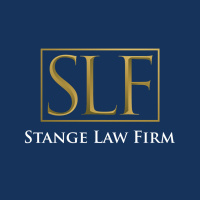Raymond Divorce & Family Law Lawyer, Nebraska
Stange Law Firm, PC
Divorce & Family Law, Child Custody, Child Support, Prenuptial Agreements, Paternity
Going through a divorce or family law matter can be an emotional time. You may feel betrayed, lost or overwhelmed. Having an attorney that can relate ... (more)
FREE CONSULTATION
CONTACTJeanette Stull
Estate Planning, Workers' Compensation, Family Law, Civil Rights, Estate
Status: In Good Standing
James H. Hoppe
Divorce & Family Law, Criminal, Wills & Probate, Personal Injury
Status: In Good Standing
FREE CONSULTATION
CONTACTCheryl Whitten Steckelberg
Commercial Real Estate, Trusts, Family Law, Elder Law
Status: In Good Standing


